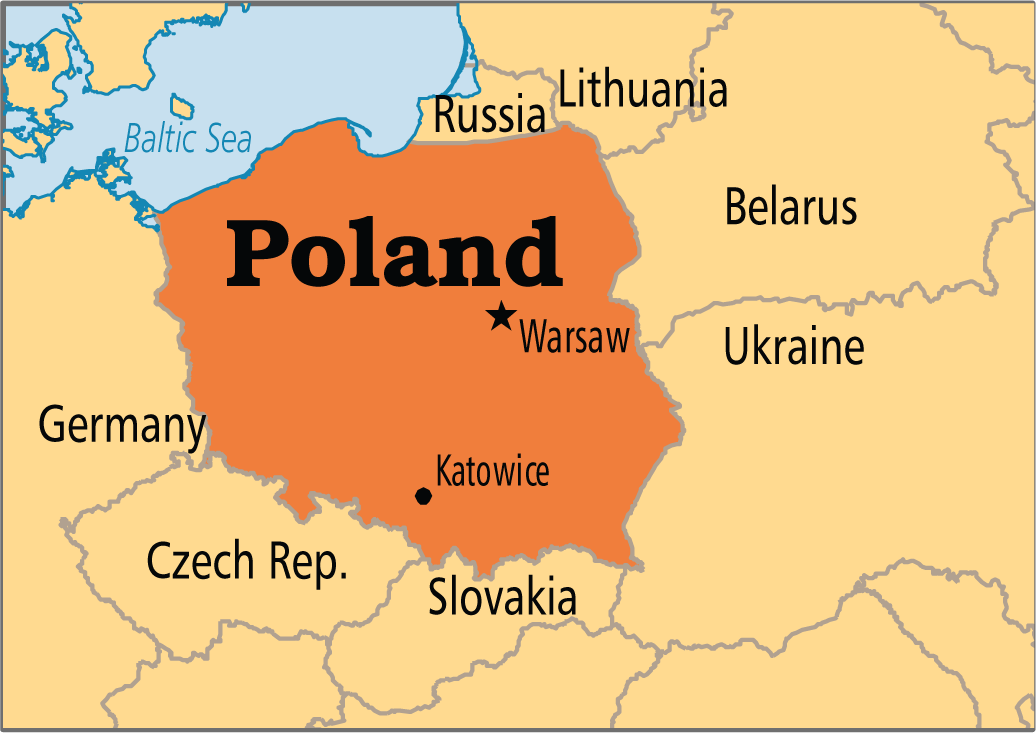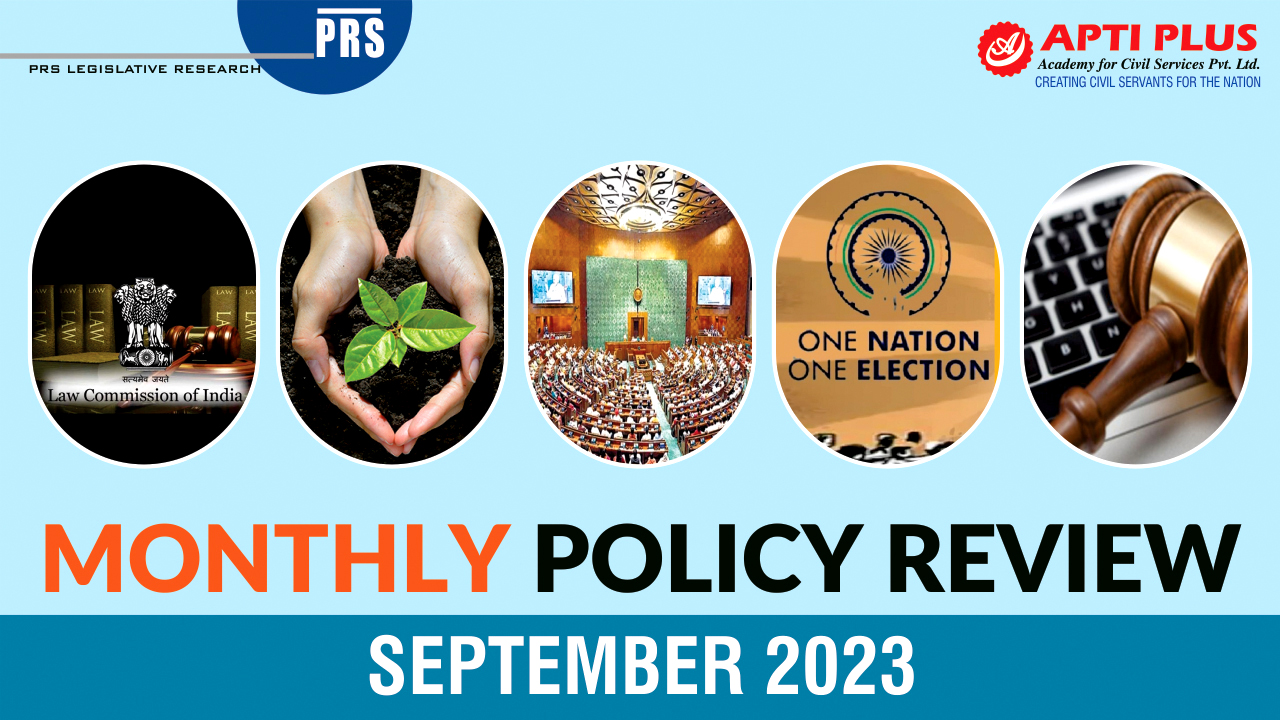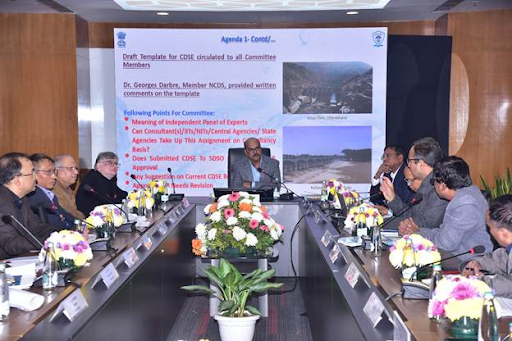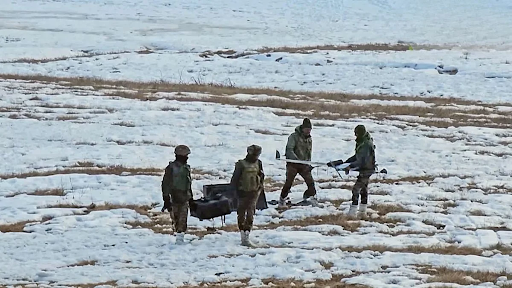Description

Disclaimer: Copyright infringement not intended.
Context
The people of Poland handed a resounding majority to a multi-party opposition coalition in the parliament’s lower house on October 15, in a record 74.4% turnout.
About
- It is the fifth-most populated member state of the European Union and is located in Central Europe.
- Warsaw is Poland's capital.
- Lithuania and Russia border it to the northeast, Belarus and Ukraine to the east, Slovakia and the Czech Republic to the south, and Germany to the west.
- It also shares marine borders with Denmark and Sweden.
Geography
- Poland is Europe's ninth-largest country.
- Poland's central and northern regions bordering the Baltic Sea are part of the flat Central European Plain, but its southern section is hilly and mountainous.
- The country has a 770-kilometer coastline that stretches from the Baltic Sea's coasts in the west to the Gulf of Gdansk in the east.
- The seashore shoreline is rich in sand dune fields or coastal ridges, and it is indented by spits and lagoons, most notably the Hel Peninsula and the Vistula Lagoon, which is shared with Russia.
- Wolin, Poland's largest Baltic Sea Island, is located within Wolin National Park.
- Poland and Germany also share the Szczecin Lagoon and the island of Usedom.
- The mountainous area in Poland's extreme south is separated into two major mountain ranges, the Sudetes to the west and the Carpathians to the east.
- Mount Rysy, at 2,501 meters in elevation, is Poland's highest point.
- RaczkiElblskie in the Vistula Delta has the lowest point in Poland, measuring 1.8 meters below sea level.
- The Vistula, Oder, Warta, and Bug rivers are Poland's longest.
- The country also has one of the greatest lake densities in the world.
- Lake Hacza is the deepest, measuring 108.5 meters.

India-Poland Relations
- Political Relations India & Poland share a long-standing friendly relationship, marked by high level political contacts and vibrant economic engagement.
- Diplomatic relations were established in 1954, leading to the opening of the Indian Embassy in Warsaw in 1957.
- The two countries shared common ideological perceptions, based on their opposition to colonialism, imperialism and racism.
- During the Communist era, bilateral relations were close and cordial, with regular high level visits (several VVIP visits from India – beginning with Pandit Jawaharlal Nehru in 1955 - and four from Poland), coupled with planned trade and economic interactions by state trading organizations, underpinned by the rupee clearing arrangements.
- The relationship continued to remain close after Poland chose the democratic path in 1989. India and Poland transitioned to hard currency trading arrangements that were sustained by rising levels of trade as both economies grew in size and heft.
- A cordial political relationship has emerged in the current century, particularly after Poland joined the EU in 2004, and became India’s key economic partner in Central Europe.
Economic & Commercial Relations
- Poland continues to be India’s largest trading & investment partner in Central & Eastern Europe.
- Over the period 2010-2020, the total bilateral trade with Poland has witnessed an increase of 107.9% i.e. from US$1.32bn in 2010 to US$ 2.73bn in 2020.
- The trade balance continues to be largely in favor of India.
Cultural and Educational Relations:
Indology:
- There is a strong tradition of Indology studies in Poland, with Polish scholars having translated Sanskrit into Polish as early as in the 19th Century.
- Sanskrit was being studied at the 600-year-old Jagiellonian University in Krakow (the oldest in Poland) in 1860-61, with a Chair of Sanskrit being established there in 1893.
- The Indology Department of the Oriental Institute at the University of Warsaw (established in 1932) is the biggest centre for Indian studies in Central Europe.
- Study of Indian languages, literature, culture, and Indology is also pursued at the Adam Mickiewicz University in Poznan and the Wroclaw University.
- ICCR sponsored the first Central & Eastern European regional conference of Indology in Warsaw University in September 2005 in which 19 scholars from 11 countries participated.
- An MoU for the establishment of an ICCR chair of Indian studies at the Jagiellonian University, Krakow was signed in February 2017 and Professor Kishore Kumar has joined the University.

Consular Relations Honorary Consulate:
- Since January 2018, India has had an Honorary Consulate in Wroclaw city. Besides the Polish Embassy in New Delhi and the Consulate General in Mumbai, Poland has two Honorary Consulates in Kolkata and Bengaluru.
- Visas: Poland has been included in the e-visa scheme w.e.f August 15, 2015, and now a rising number of Poles are availing the e-visa facilities.
- Indian Community: Estimated at approximately 15,000, the Indian community in Poland consists of traders (textiles, garments, and electronics) who came after the collapse of communism and professionals with multinational or Indian companies and software/IT experts.
- Around 5000 students are currently pursuing studies at various universities in Poland.
- There are over 100 Indian restaurants in Poland.










